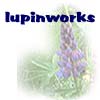SnippetsAction Research / Reflective PracticeWhat to call the reflective work we do? For more than thirty years I've been investigating my own teaching—never satisfied that I finally understand what it is I'm attempting to do. That's because the further I explored, the more my perspective changed. In "Keeping The Dory Afloat" I outline some of that journey. At the time "Tensions of Teaching" was published (1998) I'd come to refer to the work the teachers and I were doing as "action research"—the reason was that I wanted to elevate the significance of what we were doing to the same status as prevailing positivist research methodologies. Within the multi-faceted action research community it was clear the work we were doing was "teacher action research"—and the particular brand I was advocating I referred to as "Educating as Inquiry"—a reflective activity (showing the influence of Donald Schon's work). The fundamental purpose of action research/teacher action research is to examine prevailing educational assumptions and challenge the shortcomings of practice—it does this by reflecting on the impact that unexamined practice has on learning and students. The ultimate product—usually a written account of the research activity—lays out a critique of the status quo. This is a political action. Institutionalized education does its best to silence criticism. It silences teachers' voices in a variety of ways. It's become clear in recent years that one of the ways used to silence our critique and stall our reflective activity is to use our designating our work as "research" against us. A prime example is the university's policy on "research" which is required to appear in education course outlines:
These days, then, it's clearly a liability to call to our reflective inquiry "research"—it misconstrues the true nature of what we're about—attempting to examine the impact of what we do in the process of teaching. Such a statement makes it untenable to examine our professional work as long as we refer to the reflective process as "research." Teaching doesn't happen in a vacuum and although our reflective gaze is on ourselves, teaching is not a solitary activity. Other "human participants" are involved since as teachers we are engaged in doing things with other people designed to affect them—we call that learning! Therefore, these days, I shy away from referring to my work and the teachers' work as "research." I have talked about collaborative investigation—although that word "investigation" may also be problematic—it could be construed as "research". However, one of the benefits of referring to teaching as "collaborative investigation" (Russ Hunt's term, actually) is that it provides our students a voice in the activity and affords us the possibility of seeing more clearly the connection between our teaching and their learning. For the moment, I describe what I do as "reflective practice"—who knows what I will decide to call it tomorrow! |
|
© Copyright 2001-2009, . All rights reserved. |

